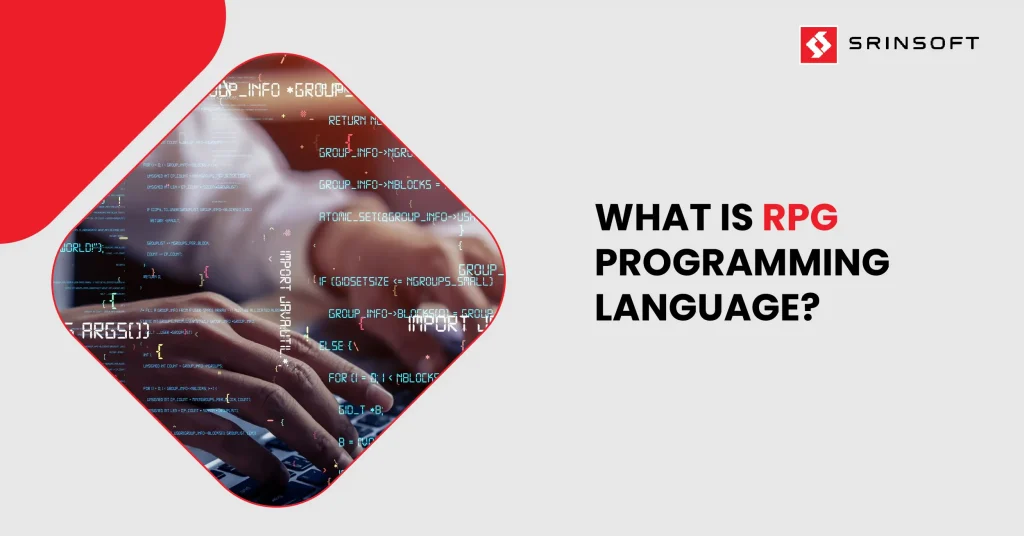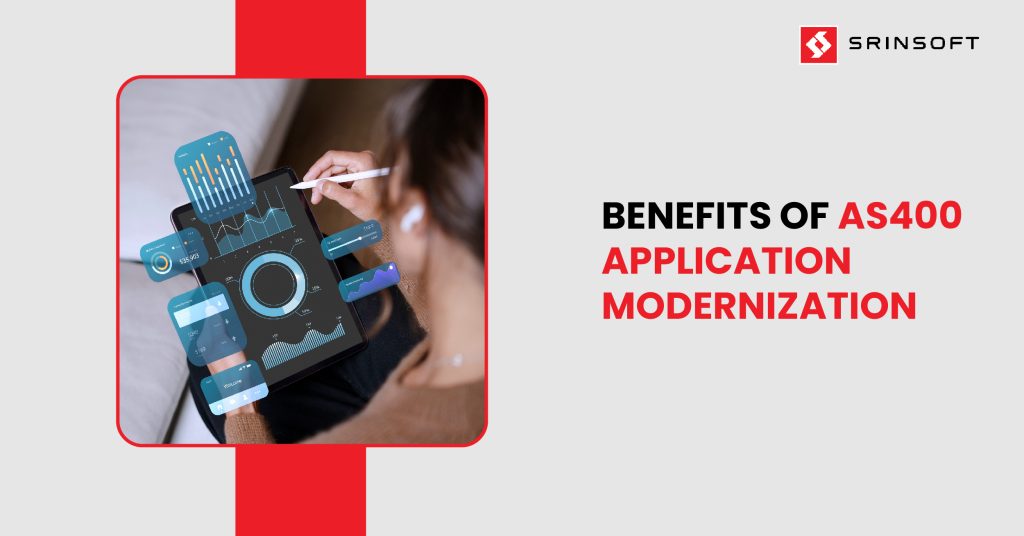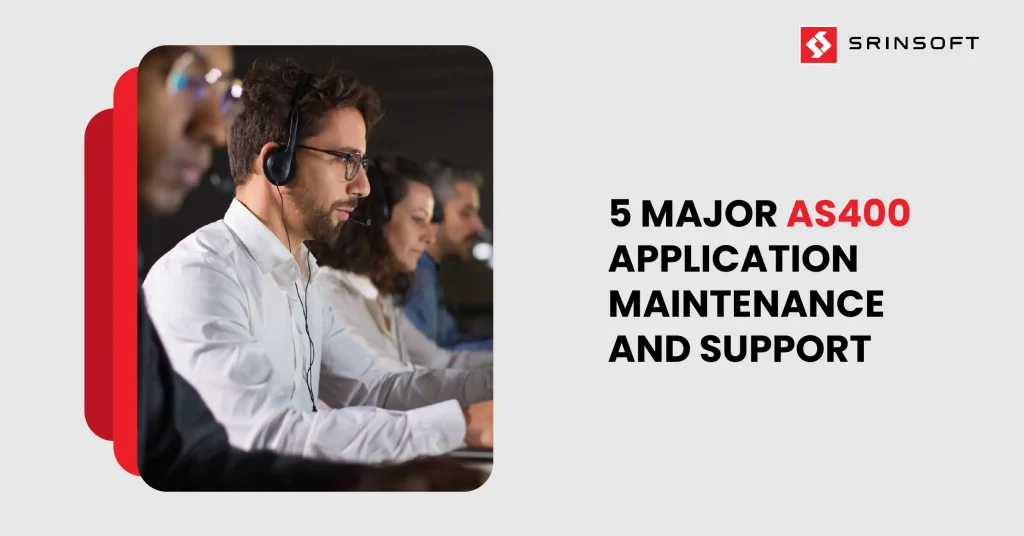
Integrating RPG Language with Modern Tools and Apps
If your organization uses AS400/IBM iSeries systems, integrating the RPG (Report Program Generator) system with modern tools and applications is a must, to make the most of the latest technologies. RPG is a proven programming language, but it may seem somewhat antiquated when compared to modern development tools. However, there are several ways through which we may fill this gap and integrate RPG with modern platforms.
One of the most tried-and-tested ways to go about this is through APIs. By exposing RPG programs as APIs, developers can design interfaces to connect modern web services or mobile apps and cloud platforms with legacy IBM i systems. Tools like IBM’s Integrated Web Services (IWS) can help convert RPG programs into RESTful or SOAP-based web services so they can help applications interact with one another.
Organizations can also use front-end frameworks such as Node.js or java to bridge RPG with contemporary technologies. Using these languages developers can write code that interacts with RPG applications thereby enabling them to develop new functionalities or seamlessly integrate their existing legacy system (written in RPG language) with other modern enterprise systems like CRM and ERP platforms.
Finally, updating the actual RPG code can help streamline integration whether it be refactoring or changing legacy code to free-form. Free-form RPG is easier to maintain and more compatible with current coding standards, which may make it simpler for developers (used to other languages) to understand and maintain.
Business Domains That Still Use AS400 Technology
AS400 is still being used by many businesses across different domains as it is well known for its reliability, scalability, and security – features that are sought after by businesses. Despite its legacy status, AS400 remains integral in several industries where stability and high performance are critical.
- Banking and Financial Services: The banking sector uses AS400 to operate core banking systems for online transaction processing and managing customer databases. Financial institutions choose it because they can safely process large numbers of transactions securely.
- Manufacturing: AS400 systems are used in manufacturing for enterprise resource planning (supply chain management, inventory control, order management) and other functions. It makes difficult processes and operations at scale more manageable thanks to the platform’s robust capabilities.
- Retail: AS400 has been around for years, used by a lot of retail businesses to handle their point-of-sale (POS) systems as well as inventory management and order processing. AS400’s stability helps retail partners, who generate substantial volume, experience no issues even during peak shopping seasons.
- Healthcare: AS400 is also widely used for managing patient records, billing systems and other mission-critical applications in healthcare. Its security features are especially valuable key in managing the privacy of patient data.
- Insurance: AS400 is also an integral part of policy administration, claim processing and customer relationship management (CRM). It provides integrations with different systems and applications helping insurance companies to manage their business operations smoothly.

Explore Our Capabilities in IBM i Services Know More
Modernising AS400 Systems
API & UI Framework
By using APIs and UI frameworks, businesses can make modern, flexible user interfaces that can interact with AS400 systems through REST APIs. This method separates the appearance layer from the application code underneath. This involves separating how the application looks (presentation) from how it works (logic), which in turn enables developers to change how the application looks without affecting how it functions.
Instead of having a fixed design, developers can create interfaces that can be scalable and adaptable very easily. To do this, developers use popular web development frameworks like Angular, React, or Vue.js to create front-end interfaces. These tools provide pre-made parts and instructions to make building interfaces faster and easier.
By making AS400 features available through REST APIs, companies can make it easy for other systems and apps to connect and work with them. This makes it easier for data to flow between platforms.
RPG Open Access
RPG Open Access (OA) makes it possible to integrate current technologies with RPG codebases that are already on AS400 systems. By making use of OA, businesses can make legacy applications more useful without having to rewrite big chunks of code. With RPG OA, developers can also use contemporary programming methods, frameworks, and libraries and still be compatible with the current infrastructure. Through its function as a link between old RPG programs and contemporary development platforms, RPG OA allows companies to gradually update their AS400 systems.
Screen Scraping
Screen scraping is the process of taking content shown on an IBM i 5250 green screen and putting it in a more appealing manner. Instead of those old screens, it gives a new look, usually on a web browser. It doesn’t change how the old system works, instead just makes it look better on the outside.
The underlying code or functions of the current app are not changed by this method. Instead, it makes the experience better for users by giving them a new way to work with old systems. Screen scraping is a quick and cheap way to bring old AS400 programs up to date because it only changes the appearance layer and doesn’t require major changes to the infrastructure underneath.
Screen Re-facing
Screen Re-facing gives old AS400 applications a new look by creating brand-new webpages using modern web design tools like HTML and CSS. These new web pages are hosted on a server. Unlike screen scraping, which captures and displays the original screen content, screen re-facing creates entirely new interfaces that interact with the old AS400 system’s underlying data and business logic. With screen re-facing, there is more freedom to design the interface exactly to the business needs. Screen re-facing might take more developmental effort, but it gives users a more personalized and up-to-date experience than traditional green screens.
Learn how RPG programming can integrate seamlessly with modern tools
Advantages of Using AS400 Over Other Technologies
While newer technologies have emerged, AS400 offers several distinct advantages over other platforms, making it a continued favorite in various industries.
- Stability and Reliability
AS400 is most significantly known for its extraordinary stability and reliability. AS400 systems are engineered to serve mission-critical applications and boast high-performance, with minimal downtime. They are therefore suited to sectors where uptime is an absolute necessity such as banking, healthcare and manufacturing.
- Security Features
AS400 has enhanced security measures that are incorporated into the system’s architecture, thereby making it a secure environment to manage critical data. The platform’s security controls, such as object-level security, auditing and encryption are designed to help organizations comply with some of the strictest data protection regulations by minimizing risks of both breaches & unauthorized access.
- Scalability
Its highly scalable nature allows businesses to grow without changing their entire IT infrastructure. AS400 can easily scale up when handling workloads, making it a future-proof choice for growing organizations.
- Integration Capabilities
AS400 systems are well capable of integrating with modern applications and technologies. Further, this flexibility allows organizations to modernize their IT environments one step at a time — adding new solutions without disrupting current operations. Integrating ERPs, databases and web services is a major benefit of AS400.
- Total Cost of Ownership (TCO)
While the initial investment in AS400 may seem high, its long-term total cost of ownership is often lower than other platforms. This makes maintenance and operating costs cheaper due to the system being reliable and long-lasting as well as not requiring new hardware or software on regularly.
- Backward Compatibility
Another unique feature of AS400 is its backwards compatibility. It allows organizations to run decade-old legacy applications as well as modern apps side-by-side, protecting their investment in older software and ensuring continuity in operations.
Final Thoughts
With organizations looking to integrate legacy systems with newer technologies, it becomes critical for RPG to be connected with web and mobile applications. This not only extends the life of existing investments but also opens new opportunities for growth and innovation.
At SrinSoft, we specialize in helping clients bridge the gap between their robust RPG-based AS400 systems and the demands of modern technology. Our experts seamlessly convert ILE RPG code from fixed form to free form, simplifying your team’s coding experience. Whether it’s on-site or remote, we provide comprehensive support for application maintenance, bug fixes, enhancements, and predictive maintenance. With customized solutions tailored to your specific needs, we enable you to modernize at your own pace, ensuring a smooth transition and long-term success.
Get started today with expert advice on upgrading your RPG systems
FAQs
What kind of programming language is RPG?
RPG is a high-level programming language for business applications, introduced in 1959.
Is RPG the same as COBOL?
Unlike COBOL (whose structure has not evolved since 1974), the RPG language has undergone some major enhancements that have made it easier to read and hence to maintain. With IBM i being RPG’s sole and unique custodian, IBM itself has had the courage and motivation to make the language evolve.
Is RPG language still used?
Indeed! RPG programming continues to be in use, and various industries value its significance for many reasons.
Why do businesses still use AS400?
The IBM AS400 system is well known for its security and is easy to implement and manage. With IBM AS400 on board, businesses can secure their records, client data, and transactions against inside and outside breaches. The technology will prevent customer data tampering and will also reduce the risk of fraud – which is the most important operational.


